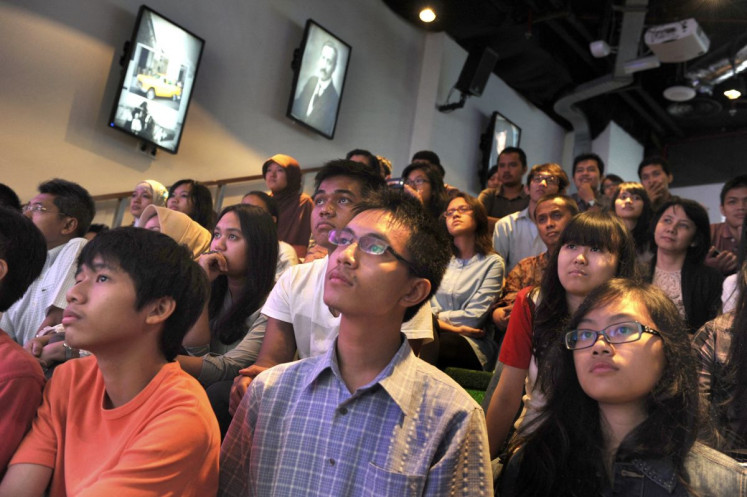Popular Reads
Top Results
Can't find what you're looking for?
View all search resultsPopular Reads
Top Results
Can't find what you're looking for?
View all search resultsIntimacy in penal code: A controversial controversy
What is championed in society is not only individual rights, but also communal obligation and a system involving man, family, society, God and nature, as understood by the religions and traditions deeply embedded in the Indonesian fabric.
Change text size
Gift Premium Articles
to Anyone
T
he spotlight of international human rights discourse is currently on Indonesia’s amendement of the Criminal Code, which indicates a strong direction toward criminalizing homosexual conduct and fornication.
The issue has always been a debate between religious morality and human rights. Most recently, the United Nations High Commissioner for Human Rights Zeid Ra’ad al Hussein spoke against criminalization of homosexuality as a form of discrimination. Using strong language, he said: “We urge Indonesians to move forward — not backward — on human rights.”
But on what basis did Al Hussein claim that criminalization of homosexuality is going “backward”? Despite starting to gain more support, the rights of sexual minorities have not achieved universal or even majority recognition. How, then, does one claim the practice of a few to be “the universal standard” while the norms of others are backward?
Yet no binding international legal instrument unambiguously protects the right to homosexuality. At best, one can argue that it is a derivative of more general rights, such as the right to privacy. There is nothing clear-cut in giving particular rights for or prohibiting people from engaging in fornication or homosexual conduct.
Those international instruments may have high ratification numbers among UN member states, but none are universally ratified and none are free from reservations.
General terms of “public interest” can also be found as exceptions to individual rights. For example, Article 18(1) of the International Covenant on Civil and Political Rights, which we have ratified, provides freedom of religion and belief. One may argue this includes the right to disbelieve. It follows that if to disbelieve in the legal protection of homosexual conduct and fornication is indeed a right, then the conduct can be restricted in the public interest or morals as per Article 18(3).
An Indonesian perspective supports this. Formally, Indonesia accepts most international human rights conventions without reservation, except cautious declarations on the rights of selfdetermination. Some argue Indonesia’s acceptance of most human rights conventions reflect postReform era “panic” to show the world that post-Soeharto Indonesia was better than before.


















